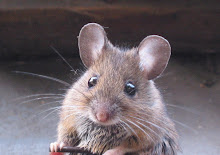The Book of Lost Things tells the story of the boy David who, once upon a time, had his world collapse around him. His beloved mother withered, sickened and died, and his father – a good man, but lonely – remarried shortly thereafter. David, feeling angry and sorry for himself, retreats to his books of fairytales. When he finds himself thrust into a different world, populated by twisted variations on the old tales, he is not even that surprised – a child accepting this strange reality where an adult would have curled into the fetal position and screamed.
Instead, David accepts a quest. He meets the Woodsman (not tin, but rather grim) who tells him that this land is ruled by a dying king whose magic book, the titular Book of Lost Things, may be able to show the boy the way back home. David sets off to see the king, suffering horrific adventures along the way: an assembling army of wolves, led by a werewolf who would be king, trolls, harpies, a Beast like something out of Stephen King’s imagination. More disturbingly, David is being followed by the Crooked Man (by the old stories, if you can learn his name he’ll leave you alone, but David doesn’t know this nasty creature’s name) who has nefarious plans for the boy.
It isn’t all terror and grue, however. David meets stalwart companions as well: the Woodsman, who feeds him, clothes him and sets him on his path; seven communist dwarves; and the soldier Roland and his trusty steed, Scylla, in whose company David learns the true meaning of loyalty, courage and love. In the company of these good men, the boy takes steps to become a man, something that will help him in his fight against the crooked man.
What is so cool about The Book of Lost Things is that it’s not just a fantasy quest story; it’s also an homage to and re-telling of the old stories – the dark, unabridged fairy tales before Disney got its mitts on ‘em. In his real world, David clung to the fairy tales because his mother loved the stories and believed in their power to transform:
Once someone started to read them, they could begin to change. They could take root in the imagination, and transform the reader. Stories wanted to be read.And in his real world, classic fairy tale tropes abound: the beautiful beloved parent dies; the decent widowed parent remarries wicked stepmother; the family goes to live in a big, mysterious house; there is the introduction of new stepsiblings and the subsequent peripheralizing of main character.
Once David makes the transition to the story-world, he finds that here, all the things he read about are real and true, but different. His new friends tell him stories, tales that seem familiar at first: how Red Riding Hood’s relationship with the Big Bad Wolf was in fact rather more complicated; how Hansel was a putz; how the Prince and the Swineherd is a story of vengeance and could have been of forgiveness; what Snow White and Sleeping Beauty are really like. There are very few happy endings in this world, it seems. As the seven dwarves tell David:
"They ate [Goldilocks] … That’s what ‘ran away and was never seen again’ means in these parts. It means ‘eaten.’” “Um, and what about ‘happily ever after? … What does that mean?” “Eaten quickly.”My library classifies The Book of Lost Things as “fantasy” fiction, and the book jacket says it is a novel “for adults.” While there are some adult themes and quite a bit of violence – although certainly no more so than in the Grimms’ original, unsanitized fairy tales* – this is about on the level of the later Harry Potter books, so mature young adults could enjoy it. The prose reads like a fairy tale, with simple sentences and clear phrasing; the sentences have a rhythm to them that would lend themselves nicely to reading aloud. This story wants to be read. People should want to read it.
* I have a volume of the unabridged Grimms' fairy tales, and they are bloody, bloody stories. When I get my stuff out of storage, I should probably read them again.






I've been looking for something just like this to read--thanks for the review! Can't wait to check it out.
ReplyDelete